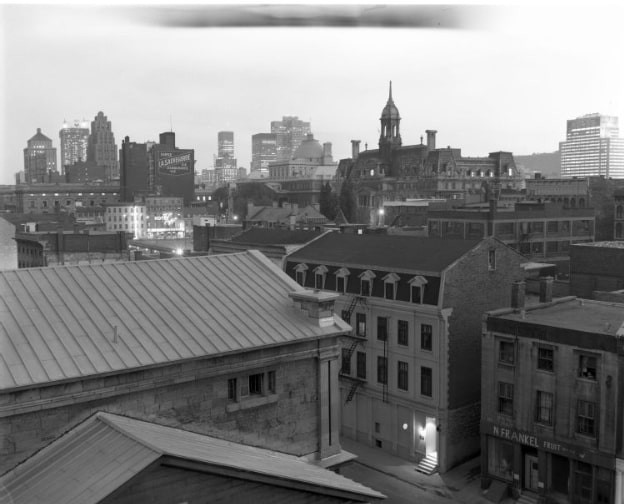Rent insecurity negates affordable housing
Renovictions are landlords’ last resort to run tenants out of affordable housing
Looking at decades old housing prices as opposed to today’s rates is a shocking reminder of the impact gentrification has had on Montreal. More than urbanization, the difference in prices highlights the devastating effects of inflation and reflects how city folk have continuously been chased out of their homes.
I’m currently renting an unfurnished, nothing-included, one-bedroom apartment. Although I’m paying $815 a month, I need to cover the cost of electricity and internet myself. When the first of every month arrives, my bill surpasses $1000.
When the annual rent increase was announced—an estimated 1.28 per cent—it felt like the hike in housing prices would be my biggest challenge when deciding to renew my lease, but I was wrong.
In February, I was made aware that my rent would be raised to $825 after May 31, but the renewal of my lease was up in the air when I was told of my new landlord’s intended renovation plans. Those plans all lead to a potential renoviction—a tactic used by landlords to hike rent prices by legally evicting tenants under the guise of renovations.
The landlord who previously owned my building was a French nudist hippie. He would take care of leaky pipes and install new floors without the threat of renoviction. That all changed when he sold the building and moved out of the first floor apartment.
When my new landlord introduced herself to me, she inquired about the possibility of relinquishing my own utilities in favour of hers. In my own home, I was asked to give up my stove, washer, and dryer. I asked my landlord if making such accommodations meant raising the housing price, to which she said yes. In the end, I would be subjected to an inevitable rent increase.
I live in a sixplex, and my apartment is on the top floor. Before he moved out, the tenant living on the first floor asked me if I wanted to take over his lease before he moved out because he didn’t want the new landlord to raise the rent of the ground floor. His lease was $850 a month, a higher price than mine because of his shared access to the backyard. When my landlord came over to make my acquaintance, I asked her how much she would be renting the first floor apartments and she replied, “$1,400 per month.” She’d be making repairs to supposedly explain the higher price.
My landlord had already established herself as a greedy building owner, so when all the tenants recently received an email about potential repairs, the first thing that came to my mind was the possibility of being evicted. It is now confirmed that the building will undergo repairs, which means my fear of potentially being evicted on the illegal grounds of faulty repairs is currently the source of many stresses.
In Montreal, you hear of landlord horror stories all the time, and I have a few of my own from my past studio apartment. I may not be living with a nest of cockroaches anymore, but one always manages to crawl back into my walls, asking me to pay more for rent.
My apartment is located in Verdun—one of the last affordable boroughs—which is the main reason why my housing situation is inexpensive compared to other neighbourhoods in Montreal, such as those located closer to the Downtown area.
“I may not be living with a nest of cockroaches anymore, but one always manages to crawl back into my walls, asking me to pay more for rent.”
With its overpopulation of coffee shops, expensive vintage stores, and money-hungry landlords, the Downtown area is not only one of the city’s most identifiable gentrified boroughs, but also one of its most expensive. For example, the rent of an unfurnished three-bedroom appartment in March was, on average, $3,178 per month, as opposed to February, where the monthly housing price in the area was $2,464.
In the 1990s, a three-bedroom apartment in Montreal went as high as $565. In the 2000s, the rent cost approximately $654, and in the 2010s, it was raised to $865.
Today, housing prices are looking more bleak than ever. As a renter, seeing such surges in living costs is disconcerting, and gives me little faith in our government’s stance concerning affordable housing, which is a necessity rather than a hypothetical.
Whether someone is facing a renoviction, or a student is unable to find a good price for an apartment—even while considering living with a roommate—these examples are a reminder that Montreal’s housing crisis is urgent.
I shouldn’t have to fear, year after year, about having to find a home in the city that raised me.
This article originally appeared in The Sidewalk Issue, published April 5, 2022.







_600_375_90_s_c1.jpg)